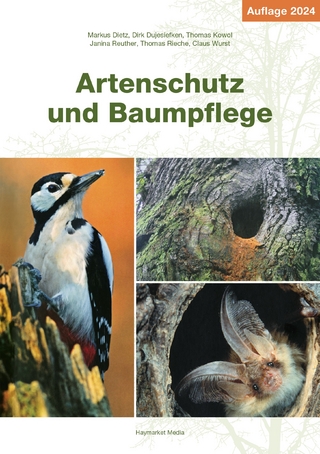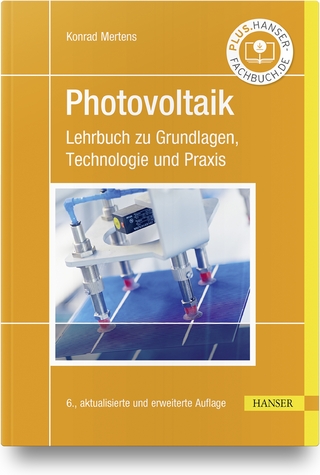
Energy, Environment, and Sustainability
CL Engineering (Verlag)
978-0-357-67607-3 (ISBN)
Dr. Saeed Moaveni is a successful engineer, author and educator. He is a licensed professional engineer in the State of New York and has more than 35 years of experience in practice, teaching and research. Dr. Moaveni has held faculty appointments at several universities, including University of South Carolina, Syracuse University and Minnesota State University, and he has served as a graduate program coordinator, department chair and dean. He is the former dean of the David Crawford School of Engineering at Norwich University -- one of the oldest engineering schools in the country (founded in 1819). He has served as a consultant to various companies and universities, and as a reviewer and panelist for the National Science Foundation for more than 25 years. As a well-known educator and researcher, Dr. Moaveni has received numerous awards throughout his career, including the Jack Cermak Distinguished Professor Fellowship, the American Society for Engineering Education Outstanding Young Faculty Award, the Inter Faculty Organization (IFO) Award for Outstanding Contributions to Women's Advancement in Minnesota State Universities, the International Network for Engineering Education and Research Recognition Award and the Global Citizen Award from Minnesota State University. Dr. Moaveni's various textbooks have been translated into many languages, including traditional Chinese, simplified Chinese, Portuguese, Farsi and Korean. He has been invited abroad as a visiting scholar at numerous universities, including Kyushu University (Japan), National Chiao Tung University (Taiwan), National Cheng Kung University (Taiwan), the Institute of Theoretical and Applied Mechanics at National Taiwan University, Shanghai University of Engineering Science and Kwame Nkrumah University of Science and Technology (Ghana).
Part I: BASIC CONCEPTS.
1. Introduction to Energy, Environment, and Sustainability.
Basic Human Needs. Energy. Environment. Sustainability. Summary. Problems.
2. Fundamental Dimensions and Systems of Units.
Fundamental Dimensions and Units. Systems of Units. Dimensional Homogeneity and Unit Conversion. Components and Systems. Summary. Problems.
3. Evidence-Based Data Analysis.
Evidence-Based Analysis. Linear Models. Probability and Statistics. Statistics � Basic Ideas. Frequency Distributions. Mean, Median, and Standard Deviation. Normal Distribution. Summary. Problems.
4. Electronic Spreadsheets
Microsoft Excel Basics. Excel Functions. Plotting with Excel. Summary. Problems.
Part II: ENERGY.
5. Energy and Power.
Energy. Forms of Energy. Difference Between Energy and Power. Energy Content (Heating Values) of Fuels. Summary. Problems.
6. Electricity.
Current, Voltage, and Electric Power � Basic Concepts. Residential Power Distribution and Consumption. Lighting Systems. Electric Power Generation, Transmission, and Distribution. Summary. Problems.
7. Thermal Energy: Heat Loss and Gain in Buildings.
Temperature Difference and Heat Transfer � Basic Concepts. Modes of Heat Transfer. Daylighting. Degree Days and Energy Estimation. Summary. Problems.
8. Energy Consumption Rates and Non-Renewable Energy Sources.
World Energy Consumption Rates. United States Energy Consumption Rates. Fossil Fuels. Nuclear Energy. Summary. Problems.
9. Renewable Energy.
Solar Energy. Solar Systems. Wind Energy. Hydro-Energy. Biomass. Summary. Problems.
Part III: ENVIRONMENT.
10. Air and Air Quality Standards.
Atmosphere, Weather, and Climate. Outdoor Air Quality Standards in the United States. Indoor Air Quality Standards in the United States. Global Air Quality Issues. Summary. Problems.
11. Water Resources, Consumption Rates, and Quality Standards.
Water � Basic Concepts. Personal Water Consumption. Water Consumption in Agriculture, Commercial, and Industrial Sectors. Drinking Water Standards in the United States. Global Water Quality Issues. Summary. Problems.
12. Understanding the Materials We Use in Our Daily Lives.
Earth � Our Home. The Phases of Matter and Properties of Materials. Metals. Plastics, Glass, Composites, and Wood. Concrete. Summary. Problems.
13. Municipal and Industrial Waste and Recycling.
Municipal Waste. Industrial Waste. Recycling and Composting. Summary. Problems.
Part IV: SUSTAINABILITY.
14. Sustainability.
How Does One Define Sustainability? The Earth Chapter. Key Sustainability Concepts, Assessment, and Tools. Apply What You Have Learned � Knowledge is Power. Summary. Problems.
| Erscheinungsdatum | 31.03.2022 |
|---|---|
| Sprache | englisch |
| Maße | 204 x 254 mm |
| Gewicht | 930 g |
| Themenwelt | Naturwissenschaften ► Biologie ► Ökologie / Naturschutz |
| Technik ► Bauwesen | |
| Technik ► Elektrotechnik / Energietechnik | |
| ISBN-10 | 0-357-67607-6 / 0357676076 |
| ISBN-13 | 978-0-357-67607-3 / 9780357676073 |
| Zustand | Neuware |
| Haben Sie eine Frage zum Produkt? |
aus dem Bereich


